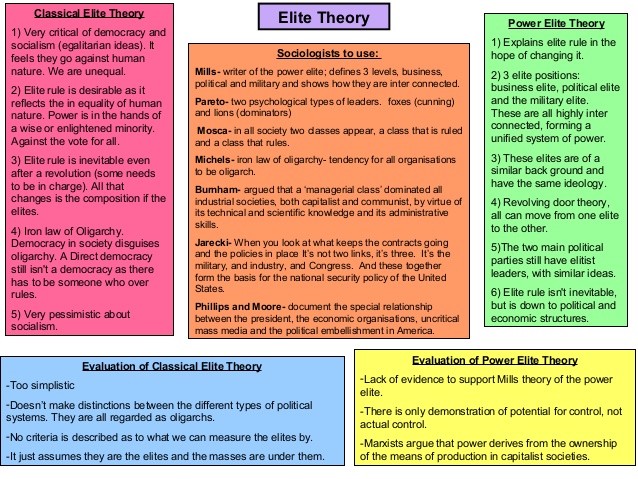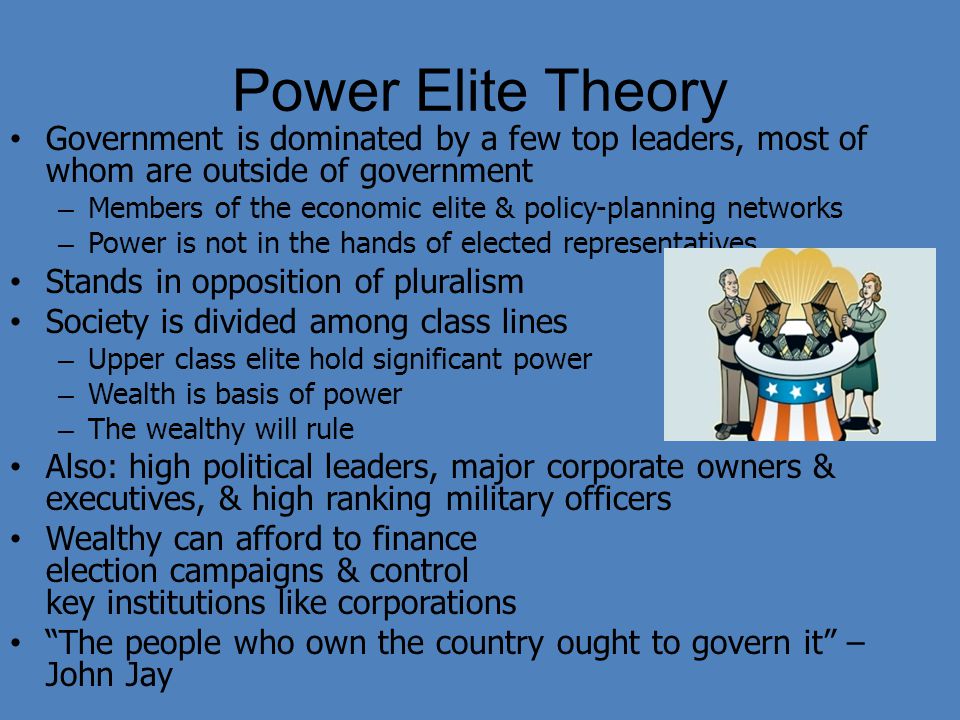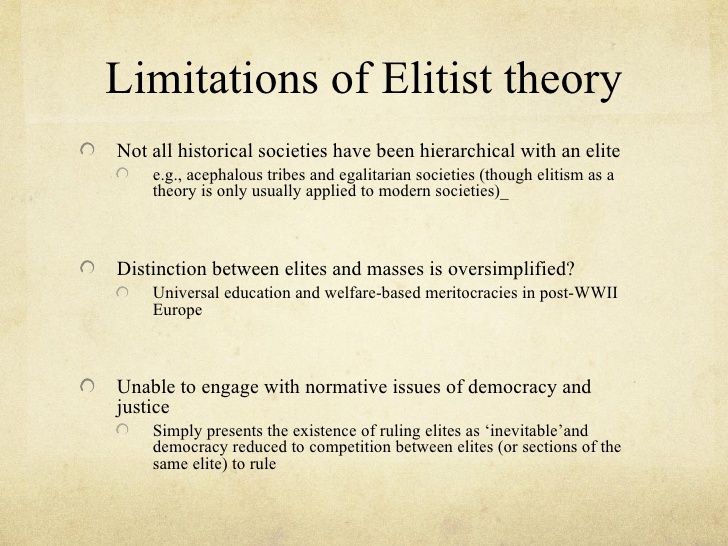
Relevance: Sociology: Paper I: Thinkers
- The elite theory of power argues that all societies are divided into two main groups the ruling and the ruled. The classical elite theorists such as Vilfredo Pareto (Italian thinker) Gaetano Mosca argued that the political power always lies in the hands of small elite and the egalitarian ideas such as socialism (Marxist theory).
- Pareto is highly impressed by Italian social system. On this basis Pareto has presented the following outline of social system. Social system is made up of 2 kinds of people:
- Elite class (Governing class or Ruling class)
- Non-elites (Mass or Ruled Class)
Elites are further divided into two types based on their Personal-Psychological qualities:
(i) Residues of combination – Fox
(ii) Residues of Group Persistence – Lion
- People of first group work on the principle of maximum gains and so are very selfish.
- They want to bring substantial change in the system, for which they easily mix up with the people.
- The second group puts lot of thrust on stability in the system. They are idealistic, therefore neither they are selfish nor believe in the immediate gain. Unlike first group, they are more contained and so do no easily mix up with people.
They could be better understood under political, economic and idealistic aspects.
The political aspect of first group is Fox because they are equally clever and manipulative and diplomatic,
- Whereas Political Aspect of the second group is Lion, a symbol of stability and idealism.
- The power rotates between the two, which Pareto called ‘circulation of Elites’.
- According to Pareto, all societies are divided into two main groups which are a Elites-Ruling minority and the Non Elites-The Ruled. This situation is inevitable. If the proletarian revolution occurs, it will merely result in the replacement of one ruling elite by the other. Italian sociologist Vilfredo Pareto claimed in his Mind and Society, 1935 that personal qualities separate the rulers and the ruled and they are the same at all times. According to Pareto, there is a ruling minority and the ruled majority. According to him, this situation is inevitable as even in communism, such polarisation takes place where a section of the have nots occupy a dominant position.
- According to Pareto, there are two types of governing elite which are lions and foxes (he borrowed this concept from Niccolo Machiavelli). Lions rule by force e.g. dictators and foxes rule by cunningness e.g. Chanakya and Chandragupta, 19th Century European Democracies etc. They replace each other in a process which Pareto calls as Circulation of Elites.
- Elites rule over the masses of people because they are dominated by non-rational forces and lack rational capacities. This is the reason that the masses are unlikely to be a revolutionary force. Social change occurs when the elite begins to degenerate and is replaced by a new elite, derived from the non-governing elite or higher elements of the masses. All elites tend to become decadent. They decay in quality and lose their vigour as they become complacent. In this situation, the other elites seize the power.
- Each type of elite lacks the qualities of its counterpart, qualities which are essential to retain the power in the long run.
- For example, an elite group of lions lack the imagination and cunningness necessary to maintain its rule and they recruit foxes from among the masses, who grow stronger over the time and ultimately replace the lions as the rulers. He even saw the modern democracies as just another form of elite domination. He is, however, criticized for not making distinction among various forms of rules like dictatorship, democracy, fascism, and communism.
- Pareto places particular emphasis on psychological characteristics as the basis of elite rule. Major change in society occurs when one elite replaces another, a process which Pareto calls “circulation of elites” and he believes history is a never-ending circulation elites. For him state is a tool in the hands of the ruling elite. He saw modern democracies as merely another form of elite domination.
- Gaetano Mosca believed that rule by a minority is an inevitable feature of social life. He claims that in all societies two classes of people appear a class that ruled. The first class, always the less numerous, performs all political functions and monopolises power and the advantages that power brings.
- The second , the numerous class is directed and controlled by the first. He viewed that there are important differences between democracies and other forms of rule. By comparison with close systems such as caste and feudal societies the ruling elite in democratic societies is open.
- There is, therefore, a great possibility of an elite drawn from a wide range of social background. As a result the interests of various social groups may be represented in the decisions taken by the elites. The majority may therefore have some control over the government of society.




